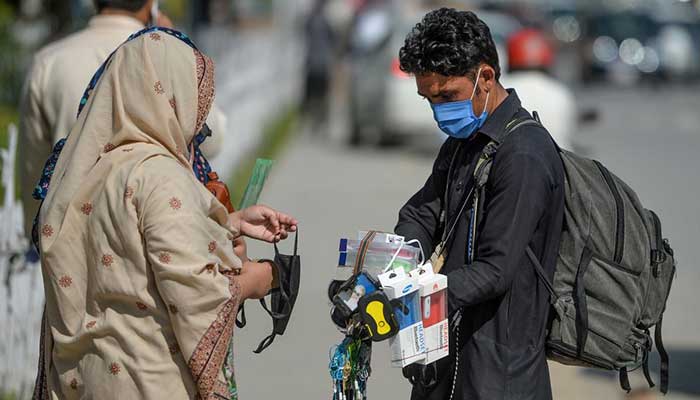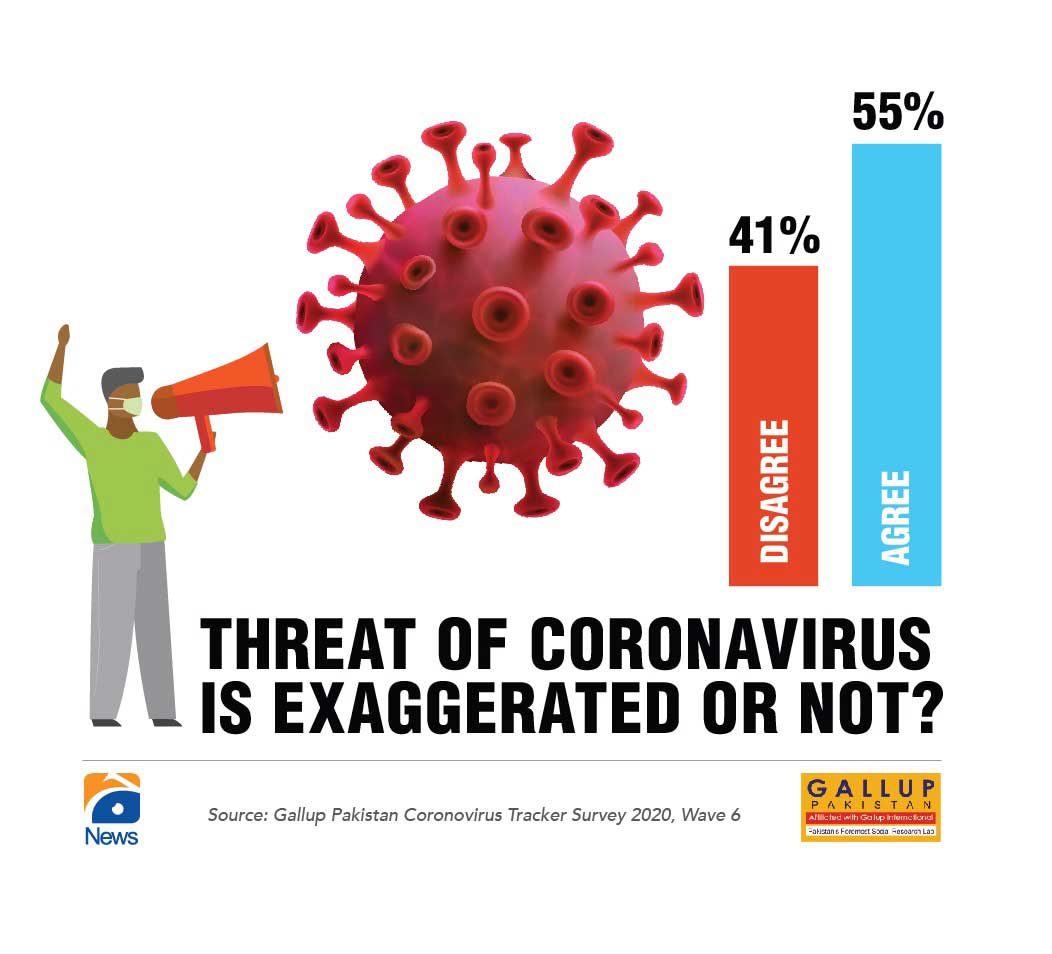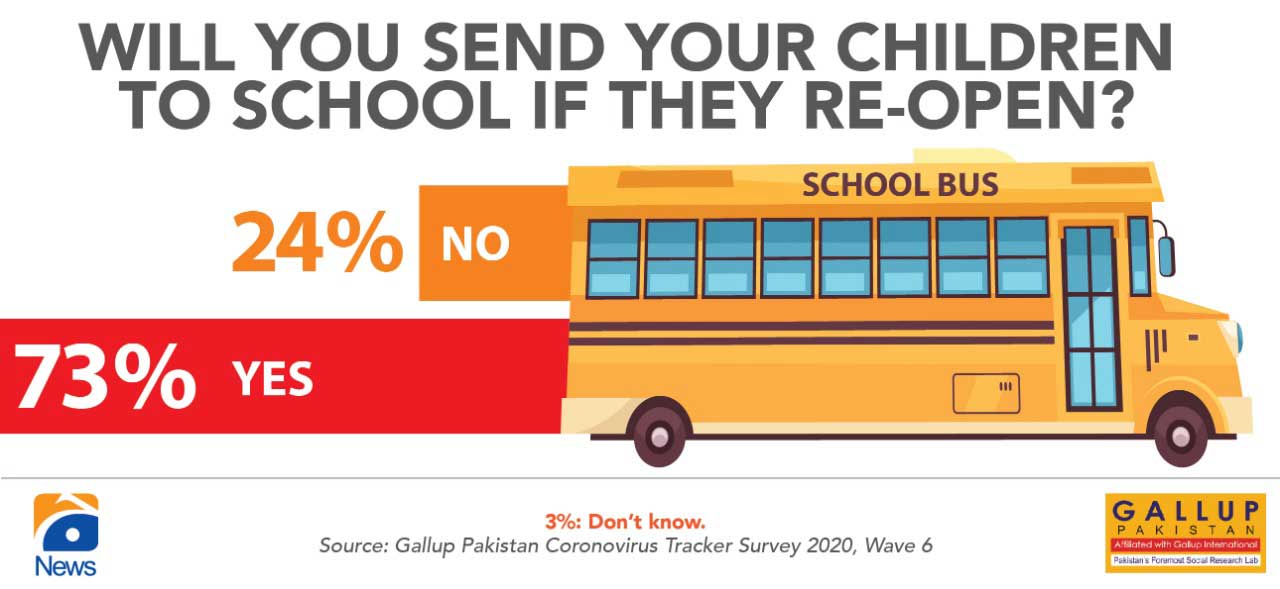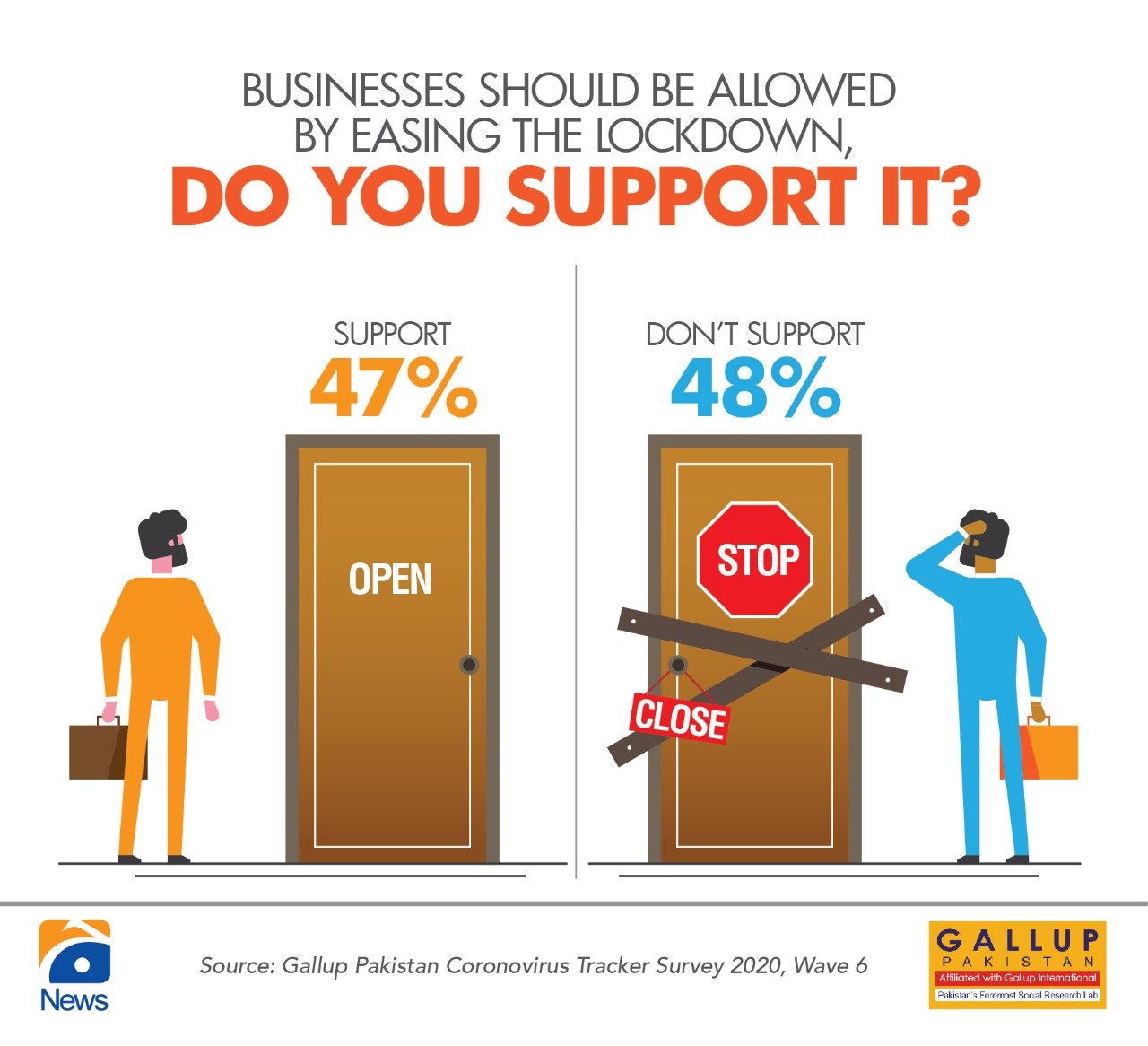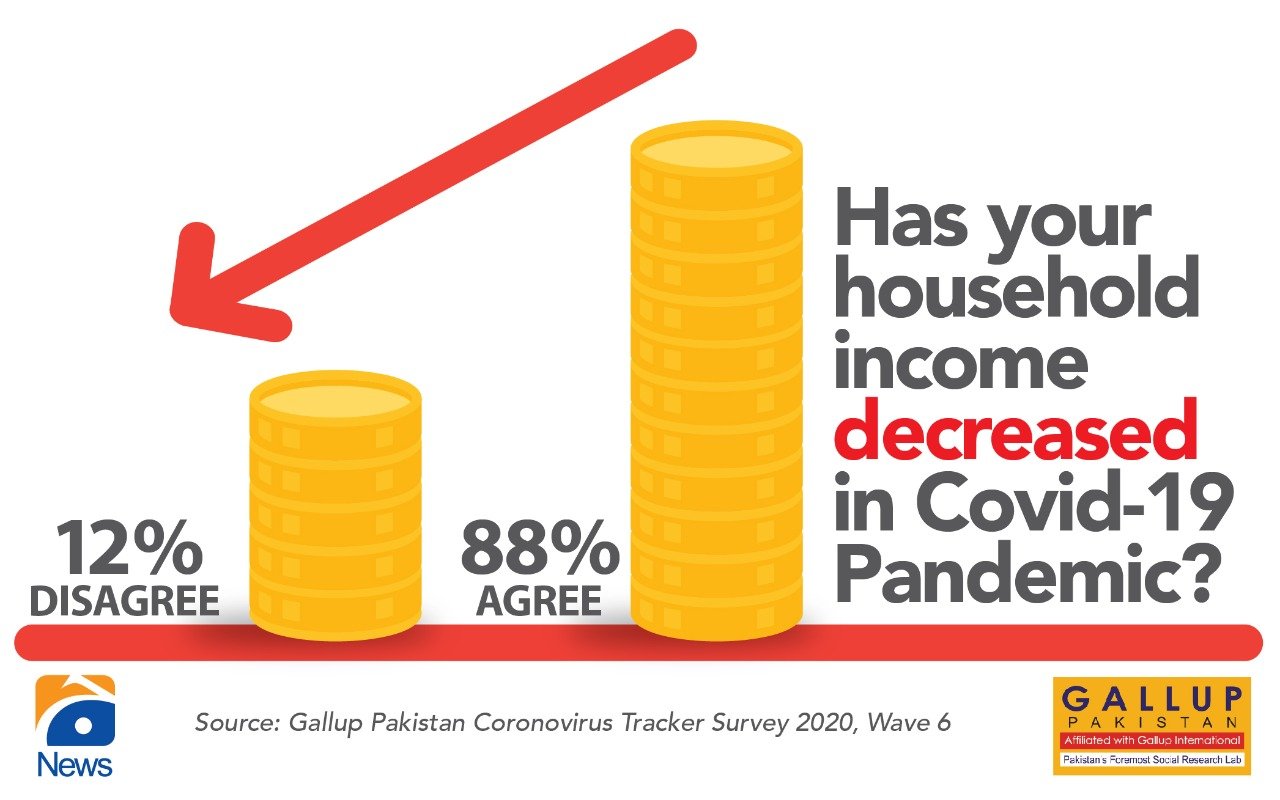55% Pakistanis believe threat of coronavirus is exaggerated: survey
Every 1 in 5 Pakistani (22%) claims that someone from within his/her social circle has contracted the coronavirus
ISLAMABAD: According to Coronavirus Attitude Tracker Survey, by Gallup Pakistan, 55% Pakistanis now believe that the threat of coronavirus is exaggerated.
The survey is about changes in public perception, attitude and behaviour since the beginning of the lockdown in Pakistan; public response and behaviour towards coronavirus initiatives and preventive measures; and the overall changes and impact of coronavirus lockdown on the daily lives of ordinary Pakistanis and businesses.
The survey found that 57% respondents and those from Sindh (65%) are most likely to agree that the threat of coronavirus is exaggerated. Respondents from Pakistan are fourth most likely to believe that the COVID-19 threat is exaggerated. Those from Japan (12%) are least likely to say the same.
The survey findings show that public opinion is split over the COVID-19 pandemic has been brought under control; 47% agree, while 48% disagree – 33% strongly disagree.
Every 1 in 5 Pakistani (22%) claims that someone from within his/her social circle has contracted the coronavirus. The survey said 22% Pakistanis reported someone from their social circle being infected by coronavirus. In comparison, only 6% Indians reported the same.
Another finding of the survey was that 12% Pakistanis claim to know someone in their social circle who died after contracting the coronavirus. One-third Pakistanis are sceptical about the number of COVID-19 cases being reported by the government. Since April, a hefty 15% decline in the proportion of Pakistanis has been witnessed who opine that the federal government of Pakistan is controlling the coronavirus situation very well -- now 67% agree, while 28% disagree.
After a significant decline in early April (29%), nearly two in three Pakistanis (65%) now report a male family member visiting the mosque for Jumma prayer. Respondents from Balochistan (91%) are most likely to say that a male family member offered Friday prayers in a mosque. 42% from Sindh report otherwise.
The survey found that three-fourth Pakistanis report that a male member of their household offered Eid prayers in a mosque this year. One in four Pakistanis claim that their household spending increased this Eidul Fitr as compared to last year.
About 74% Pakistanis say that they will send their children to school if they re-open. Urban repondents (30%) and females (28%) are most likely to say they will not be sending their children to school if they re-open. The survey found that three in five (59%) Pakistanis are hopeful that life in Pakistan will return to normal by the end of the year.
Public opinion split over further opening up of businesses across the country by relaxing the lockdown. 47% Pakistanis support while 48% do not support it. Highest proportion of respondents from Sindh (83%) and respondents aged below 30 support further opening up of businesses across the country due to ease in lockdown.
The survey findings show that a significant majority (88%) of Pakistanis claim that their household income has decreased since the spread of the coronavirus pandemic in Pakistan. Since April, 900,000 more households now claim to have reduced the number or size of meals for some family members to cover their household's basic needs. Nearly 1 in 4 Pakistanis (22%).
Nearly 22 million adults say they have borrowed food or asked for help from a friend or relative in the past 7 days to cover their household’s basic needs. As many as 2.1 million households now claim to have sold some assets in the past 7 days to cover their basic household needs, the survey found.
-
 Critics Target Palace Narrative After Andrew's Controversy Refuses To Die
Critics Target Palace Narrative After Andrew's Controversy Refuses To Die -
 Sarah Ferguson’s Delusions Take A Turn For The Worse: ‘She’s Been Deserted’
Sarah Ferguson’s Delusions Take A Turn For The Worse: ‘She’s Been Deserted’ -
 ICE Agents 'fake Car Trouble' To Arrest Minnesota Man, Family Says
ICE Agents 'fake Car Trouble' To Arrest Minnesota Man, Family Says -
 Camila Mendes Reveals How She Prepared For Her Role In 'Idiotka'
Camila Mendes Reveals How She Prepared For Her Role In 'Idiotka' -
 China Confirms Visa-free Travel For UK, Canada Nationals
China Confirms Visa-free Travel For UK, Canada Nationals -
 Inside Sarah Ferguson, Andrew Windsor's Emotional Collapse After Epstein Fallout
Inside Sarah Ferguson, Andrew Windsor's Emotional Collapse After Epstein Fallout -
 Bad Bunny's Star Power Explodes Tourism Searches For His Hometown
Bad Bunny's Star Power Explodes Tourism Searches For His Hometown -
 Jennifer Aniston Gives Peek Into Love Life With Cryptic Snap Of Jim Curtis
Jennifer Aniston Gives Peek Into Love Life With Cryptic Snap Of Jim Curtis -
 Prince Harry Turns Diana Into Content: ‘It Would Have Appalled Her To Be Repackaged For Profit’
Prince Harry Turns Diana Into Content: ‘It Would Have Appalled Her To Be Repackaged For Profit’ -
 Prince William's Love For His Three Children Revealed During Family Crisis
Prince William's Love For His Three Children Revealed During Family Crisis -
 Murder Suspect Kills Himself After Woman Found Dead In Missouri
Murder Suspect Kills Himself After Woman Found Dead In Missouri -
 Sarah Ferguson's Plea To Jeffrey Epstein Exposed In New Files
Sarah Ferguson's Plea To Jeffrey Epstein Exposed In New Files -
 Prince William Prepares For War Against Prince Harry: Nothing Is Off The Table Not Legal Ways Or His Influence
Prince William Prepares For War Against Prince Harry: Nothing Is Off The Table Not Legal Ways Or His Influence -
 'How To Get Away With Murder' Star Karla Souza Is Still Friends With THIS Costar
'How To Get Away With Murder' Star Karla Souza Is Still Friends With THIS Costar -
 Pal Reveals Prince William’s ‘disorienting’ Turmoil Over Kate’s Cancer: ‘You Saw In His Eyes & The Way He Held Himself’
Pal Reveals Prince William’s ‘disorienting’ Turmoil Over Kate’s Cancer: ‘You Saw In His Eyes & The Way He Held Himself’ -
 Poll Reveals Majority Of Americans' Views On Bad Bunny
Poll Reveals Majority Of Americans' Views On Bad Bunny
